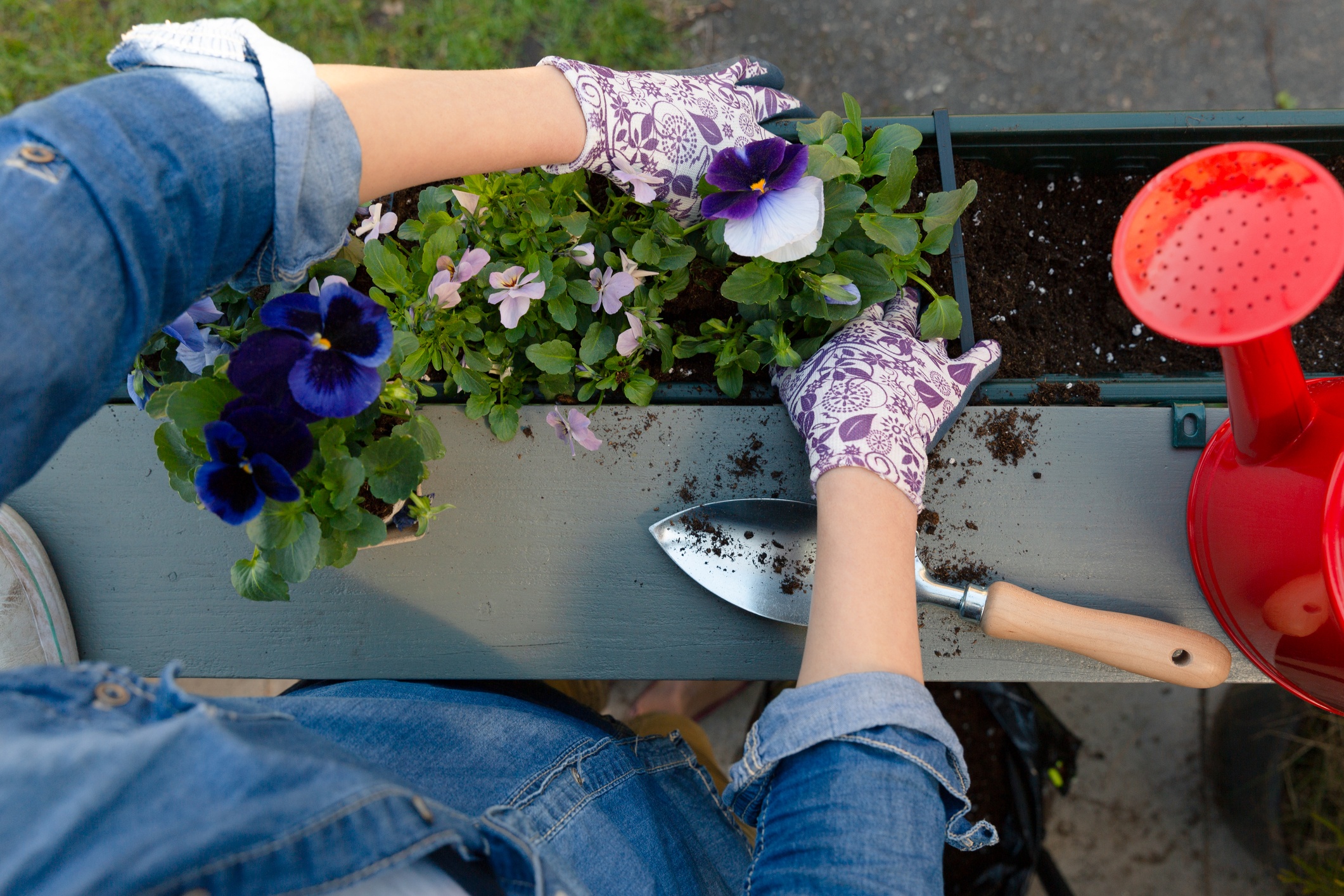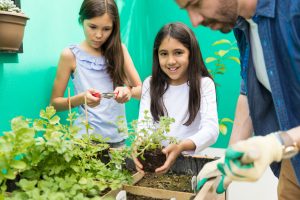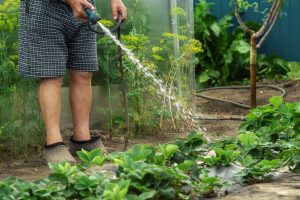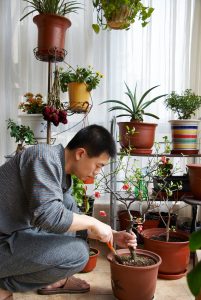Meditative and Mindful Gardening Practices

You may have a backyard that is untouched, a vegetable garden you have worked on for years, or a potted plant in your kitchen, but no matter how big or small your green thumb is, there is something to be said about the feeling you get from caring for a plant.
We can often find it difficult to take the time to meditate or practice being mindful. By using an activity or hobby we are already doing, like gardening, and incorporating mindful and meditative practices, we can combine these positive activities together. We will receive a greater sense of accomplishment, it helps us relax from our everyday activities and provides us with an opportunity to get some exercise and outdoor time in.
Here are 5 ways gardening can assist you in your journey to mindfulness
Shifting your focus
Gardening, or taking care of a plant at home can assist you in shifting your focus from what is not there to what is there. For example, your onions may not be growing and you may become frustrated, however 3 feet away your kale may be flourishing and you may miss that due to focusing on the negative. This shows us that even if something seems wrong in one part of our life there are always wonderful positive things we can shift our attention to.

Showing compassion to others
When working with plants we have to deal with so many outside factors, including bugs, birds and other animals. They are just doing what they need to survive, which may include eating and destroying your hard work. By realizing that they are not doing this maliciously, we can find compassion in their actions and learn to amend our gardening practices to work with these obstacles. This can be learned through the bugs eating all the leaves on your kale plant, or the deer eating all your favourite flowers, you may decide to put a fence around the plants you want to keep from the deer eating, or use a natural alternative to keep your kale leaves from being eaten.
Letting go of expectations
By detaching yourself from the expectations you may have of a “perfect” outcome, you can achieve a more fulfilling experience.
You may dream up a big garden with lots of flowers, or you may want the perfect vegetable patch, however something may go awry in the season that does not allow your flowers to blossom, or your vegetables get eaten by insects and your harvest is compromised. It is important to see that although the outcome was not what you hoped for, there were still many positive experiences that preceded this. It could be that you had the chance to get outside with your family and do an activity together. You may have gained priceless knowledge you did not have before, while getting the vitamin D you were desperately lacking. By being mindful to stay in the present moment, we let go of future expectations and stresses. Remembering that the results of our efforts are not usually within our control when gardening is key to enjoying the journey and not thinking of the outcome.

Becoming More Aware
You can do this by reconnecting with your senses and being conscious of the sights, smells, sounds, emotions, and thoughts you experience during your time gardening. To put you in the present moment and immerse you in your gardening or plant-tending experience.
Gardening helps you become present by dealing with the task right in front of you. By becoming more aware of the present we can achieve mindfulness. This can in turn help us enjoy our experiences out in the world better, be more grateful and show our compassion towards ourselves and others naturally.
Putting Judgement Aside
You may experience other thoughts or emotions that take you away from the moment, instead of becoming frustrated with yourself note the feeling and work to shift your thought process back to your senses to become present. Be aware of your thoughts or feelings in a nonjudgmental way. Know that accomplishment is personal, and cannot be compared to others. Gardening cannot be about what others think of you, as you are doing this activity to find your own inner peace.
Remember that anything that connects you to the present moment can be meditation. We are all different and find enjoyment in different ways, whatever it is that you find is the right one for you. Begin with an activity you already enjoy, that takes up a significant amount of your time, apply these mindfulness practices to that activity and from there you will find it easier to incorporate them into your everyday life.
Know that your garden does not have to come together all at once. “A cluttered life is not necessarily a full life.” Avoid the impulsive urge of creating for the sense of creating. Slow down your impulsiveness to not needing to completely fill an empty space.
Disconnected from the world in which we are operating. Gardening can give you a sense of peace, calming and connection to the world around you by using the mindfulness practices above you can live a more fulfilled lif  e.
e.
